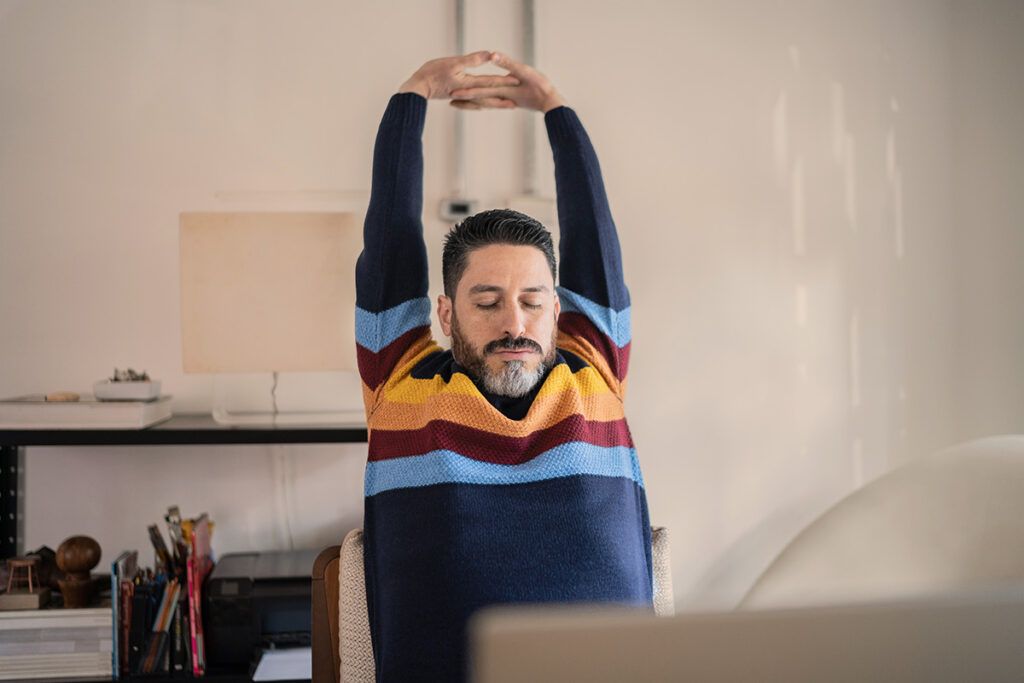Stiff joints are a common part of the aging process. You may feel the stiffness when you first get out of bed or after sitting for a short time. You may also feel stiffness when you bend to pick something up or when you reach for something high up.
There are some medical conditions, like arthritis, bursitis, and lupus, that can cause joint pain and stiffness, but there are many treatment options and pain relievers to help you manage these symptoms.
What causes stiff joints?

Stiff joints have a variety of potential causes. Aging can lead to stiff and uncomfortable joints, depending on lifestyle factors, genetics, and your body’s unique composition.
Arthritis, or chronic inflammation of the joints, is a common cause of joint stiffness. It affects around 15 million people in the United States. Osteoarthritis can result from aging, overuse, or a high body mass index (BMI), while rheumatoid arthritis is a chronic autoimmune condition where your body attacks your joints.
Arthritis also has many forms, which may present differently. For example, gout is a form of arthritis that typically affects one joint at a time. Post-traumatic arthritis tends to occur following an injury, and symptoms may include swelling, fluid buildup, and pain. You should heal from this within around 6 months of injury. However, in some cases, symptoms can persist and become chronic.
Joint stiffness is not always arthritis. Total body pain and stiffness is also a symptom of fibromyalgia, a chronic condition affecting about 4 million adults in the United States. You may be more susceptible to fibromyalgia if you have rheumatoid arthritis or lupus, an autoimmune condition in which your body attacks its own tissues. This can affect any part of the body.
Other causes of stiff joints may include:
- inactivity
- bone cancer
- bursitis
Can stiffness become worse at different times of the day?
The most common time to have stiff joints is after waking up from a long sleep. That’s because the amount of fluid around your joints reduces during sleep, making mobility more difficult.
In addition, when you lie in one position for an extended period, it can make the joints become more stiff in that area.
You may also notice more pain following your usual daily routine, as you may have spent a prolonged period using your joints.
Medications to help relieve stiff joint pain
There are both prescription and nonprescription medications that can help reduce joint inflammation and pain. Treatment will typically differ based on the reason for your joint stiffness but may include nonsteroidal anti-inflammatory drugs (NSAIDs) and prescription medications.
NSAIDs, like aspirin, naproxen (Aleve), and ibuprofen (Advil), are the most common over-the-counter medications used to treat these symptoms. Stronger doses of some of these medications may also be available via prescription from a doctor.
Prescription medications include corticosteroids, like prednisone (Prelone) and dexamethasone (Decadron), which are types of steroids, and disease-modifying antirheumatic drugs (DMARDs), like methotrexate (Trexall) and sulfasalazine (Azulfidine).
If you need help covering the cost of medications, the free Optum Perks Discount Card could help you save up to 80% on prescription drugs. Follow the links on drug names for savings on that medication, or search for a specific drug here.
